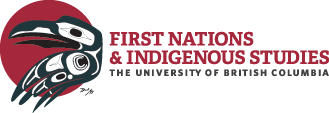Oral Narratives of the Klamath Termination: Individual Elders Reflect on Time and Change is a video archive that records the observations of a group of six members of the Klamath, Modoc, and Piute tribes that once, and now again, comprise the Confederated Tribes of the Klamath Indian Reservation in southern Oregon. The unifying theme in their recollections is their experiences as community members of a cataclysmic event in the 1950s—the termination, by act of the US Congress, of their status as Indians and as a tribal community, and the dissolution of their reservation. With the passage of this federal law, the extensive land holdings of the reservation passed out of tribal control, and community members, no longer recognized as Indians, dispersed throughout the region and elsewhere. The effects on the Klamath Reservation tribes, and on other groups in Oregon and the Midwest who suffered a similar fate, were severe, and part of what participants in this project describe.
The termination acts were a landmark in US federal Indian policy, and were influential internationally as well: the policy served as one kind of model for Prime Minister Pierre Trudeau’s White Paper that proposed to end the Canadian Indian Act, which, though highly problematic for Aboriginal people, did preserve rights attached to Indian status. And while the Termination policies were eventually abandoned in the US and many groups saw their status restored in the 1980s (generally without former land holdings), and the while the White Paper successfully resisted in Canada, the Klamath termination and the other terminations that accompanied it, serve as a clear example of the effects of policies that move precipitously to end protection of Indigenous rights.
Oral Narratives of the Klamath Termination also includes observations that extend considerably beyond specific comment on termination. Participants recall the social structure and functions of life on the reservation before termination as a way of understanding and assessing cultural change, what was lost and, in some respects, with great effort, regained. Participants describe as well their own life histories in its aftermath, and their work constructing their lives in the post-reservation and restoration eras, as well as their participation in the preservation and restoration of their culture and community. One, Morrie Jimenez, the primary contributor to the archive, describes his long involvement in civil rights and education, and all the processes that contributed to his work. Among the many observations are keys to understanding advocacy for Indigenous education, successful collaborative work with communities, and understanding cultural change.
Viewing the Archive
You can begin to explore the archive immediately by opening the IVT viewer, clicking on the Session Menu button to view descriptions of the sessions, and clicking on the session of your choice. You might also like to check out our other IVT implementation on this site. If you still encounter problems, see our help page.
Descriptions of the complex and integrated traditional lifestyle of the community before Termination occur at many points in the archive. You might begin by looking at these observations by Morrie Jimenez (Oral Narratives 2,18) and Lynn Schonchin (Oral Narratives 11,3).
All of the participants, in various ways, talk about the effects of Termination, but these observations by Morrie Jimenez (Oral Narratives 1,17) and Delphine Jackson (Oral Narratives 16,19) are a good place to start.
Recovery of some traditions lost, or almost lost through Termination is painstaking work. Ivan Jackson describes some of what it involves (Oral Narratives 17,83).
Work that others engage in collaboratively with Indigenous communities can be deeply satisfying, but those who approach it with the wrong attitudes can find it difficult or disastrous. Listen to this engaging story from Morrie Jimenez that explains the difference (Oral Narratives 13,6).
To open the archive and explore on your own, click here.
Check back as additional materials on this archive, including links to downloadable PDF transcripts will be added soon.

